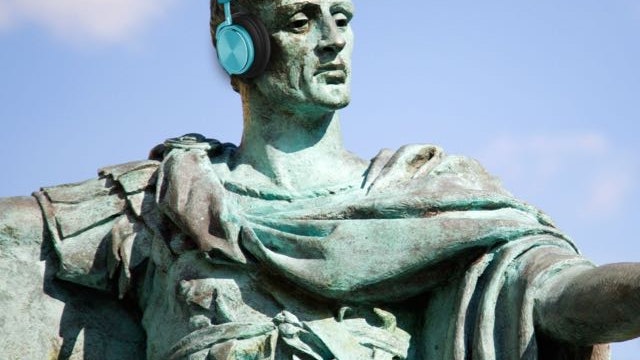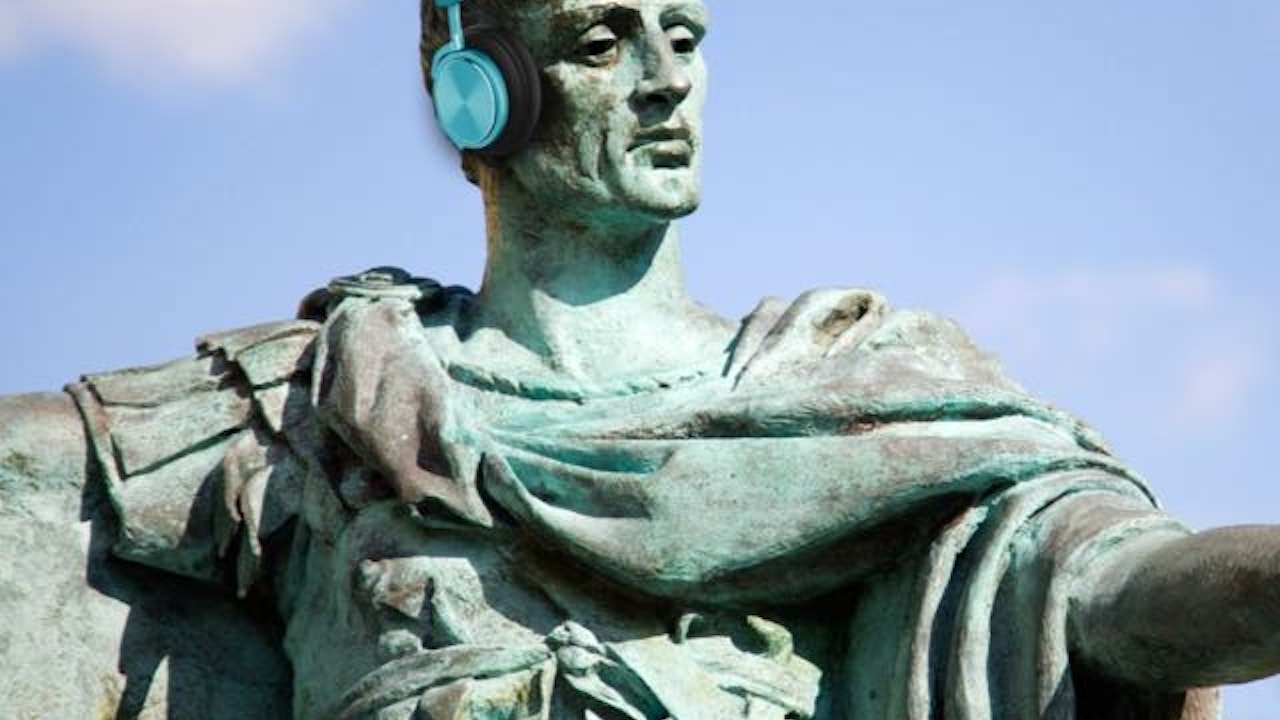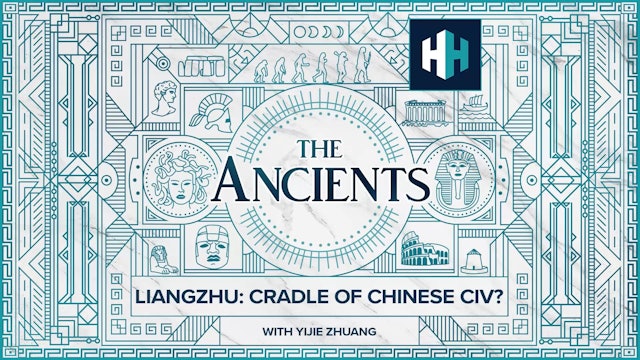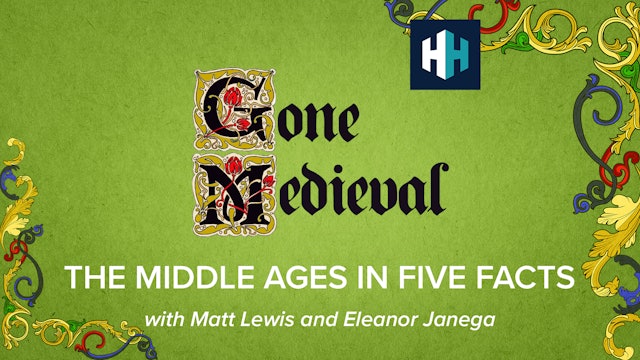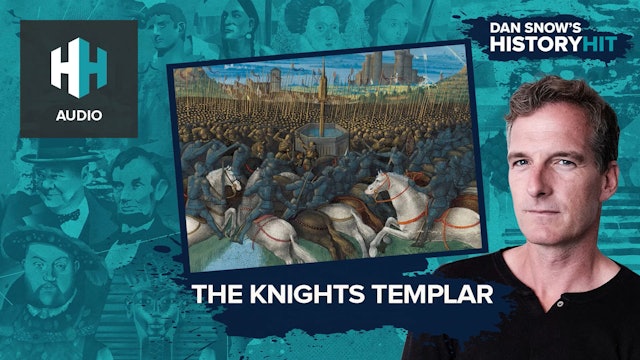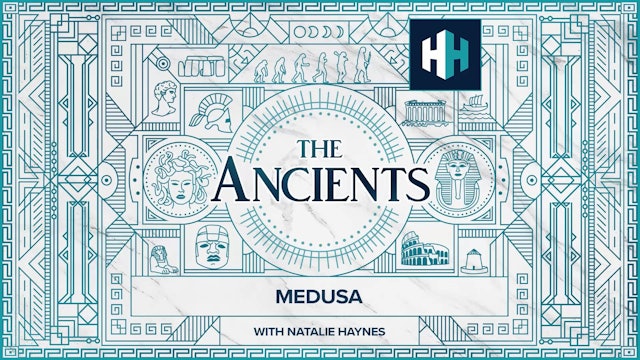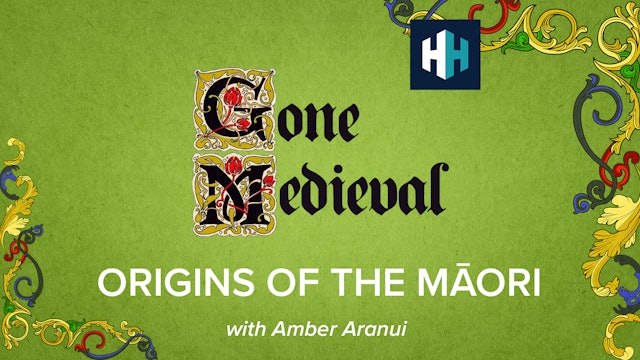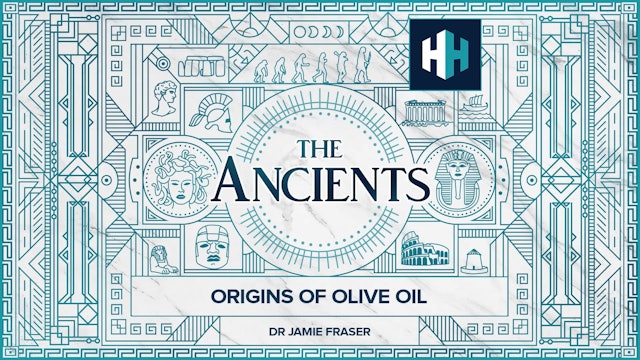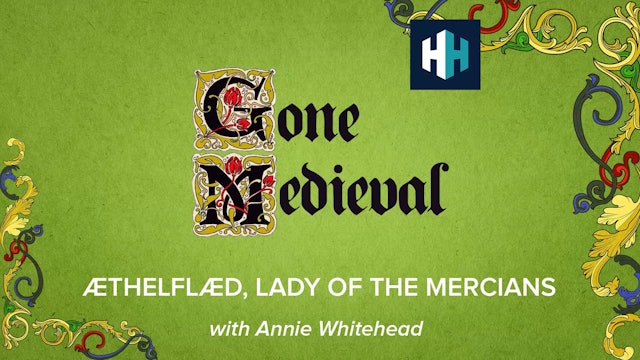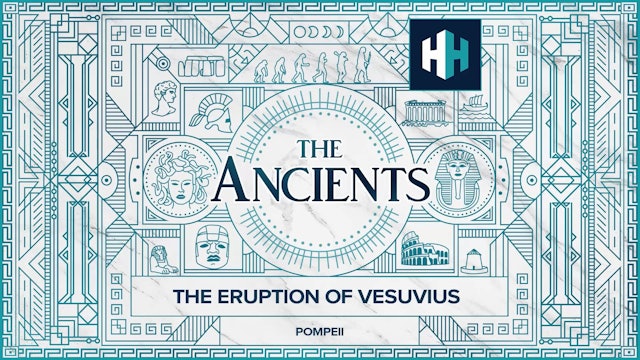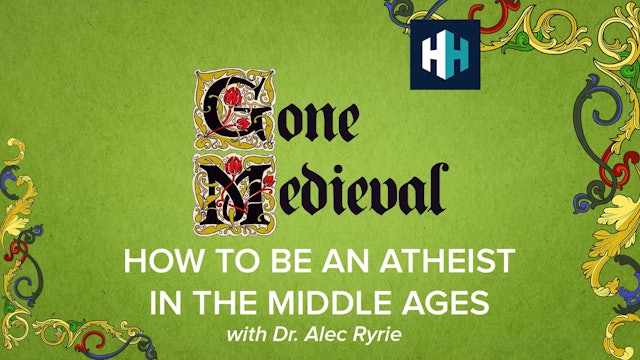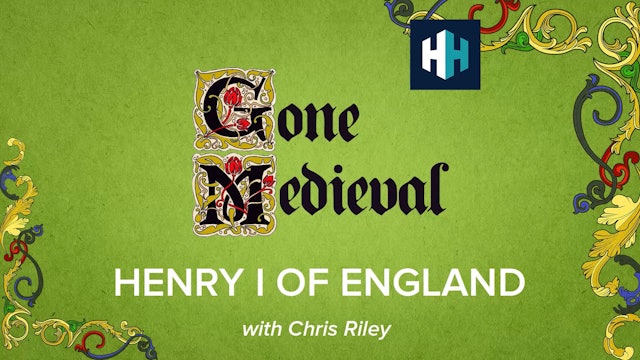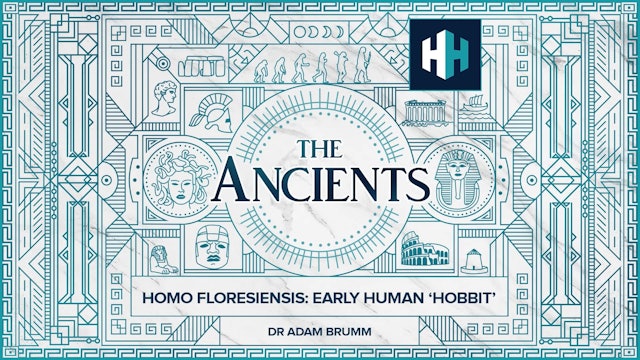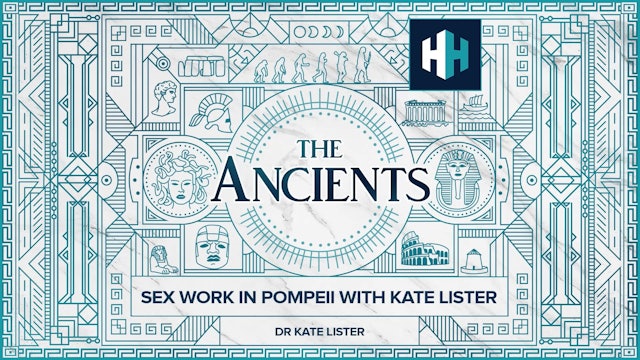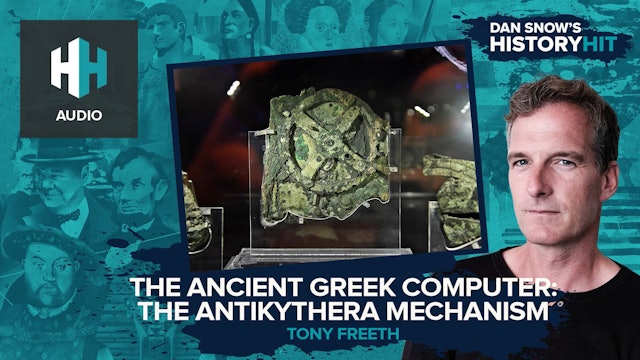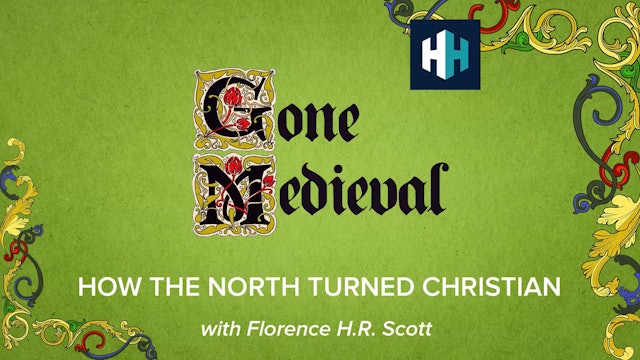Archive of Dan Snow's History Hit 🎧
To get the latest episodes of Dan Snow's History Hit,
If you signed up after October 2023 go to historyhit.com/dashboard
If you signed up before October 2023 go to this form: https://insights.historyhit.com/podcast-rss-feed
-
🎧 The Great Caterpillar Outbreak of 1782
In the spring of 1782, it wasn't the American Revolutionary War that had Londoners worried. The city and nearby countryside had been covered in ominous, mysterious webs, filled with untold numbers of caterpillars and their eggs. The city responded with panic, and rumours of plague and pestilence ...
-
🎧 Liangzhu: Cradle of Chinese Civilisation?
Where do you begin to understand the origins of Chinese civilization? Located near the Yangtze River, the treasures of the Liangzhu culture can be found, a civilisation that dates back to the Neolithic.
Today, Tristan Hughes is joined by Dr. Yijie Zhuang from University College London to uneart...
-
🎧 The Middle Ages in Five Facts
Where is the grave of King Arthur? What was the worst year in human history? Who were the most fractious royal siblings? What were the origins of humble pie? Which monsters pre-occupied Medieval minds?
In this episode, Gone Medieval’s co-hosts Matt Lewis and Dr. Eleanor Janega delve into some of...
-
🎧 The Knights Templar
Few organisations in history have names as loaded with legend as the Knights Templar. Western culture is infused with the mythology of these pious warrior monks, who wielded magic and went on quests for legendary treasures. In reality, it was an elite fighting force that became a Middle Ages mili...
-
🎧 The Nazi Massacre at Rumbula
What would it be like to discover that your grandfather was a Nazi? For decades, generations of Germans have been grappling with the legacies of relatives who were part of the Third Reich. These legacies inspire feelings of tremendous guilt but also present an opportunity to acknowledge and learn...
-
🎧 Europe's 1848 Revolutions
In 1848, Europe was wracked by a series of revolutions that turned the established political order on its head. Across the continent populations erupted in revolt, and the shockwaves of these revolutions rippled across the globe. But these uprisings hold a strange place in European history - did ...
-
🎧 Medusa with Natalie Haynes
Warning: This episode contains references to sexual assault.
Medusa stands as one of the most iconic yet misconstrued figures of Greek mythology.
Recognised as one of the three Gorgons, she is notoriously portrayed with serpentine hair and petrifying eyes that turn onlookers to stone. Her life ...
-
🎧 How to Spot Magic in Medieval Buildings
In the Middle Ages, people made marks and concealed many objects in their buildings to protect themselves from harmful magic. Dead cats, horse skulls, hidden shoes, written charms and protection marks were all used widely as methods of repelling, diverting or trapping negative energies.
In this...
-
🎧 Anne of Bohemia
Dr. Eleanor Janega continues Gone Medieval’s special series of podcasts about Medieval Queens with a look at Queen Anne of Bohemia, the first wife of England’s King Richard II.
Eleanor is joined by Kristen Geaman, lecturer at the University of Toledo, Ohio, to find out about Anne’s influence on...
-
🎧 Rise of the Tudors
Join Dan as he rollicks through the tumultuous life and rise to power of Henry Tudor, the man who would ultimately become King Henry VII of England. Step back to the late 15th century, a period marked by conflict, political manoeuvring and alliances as a young Henry Tudor, having spent much of hi...
-
🎧 Origins of the Maori
Around the time of the start of the Hundred Years’ War between England and France, and the Black Death was devastating tens of millions of people in Europe and Asia, waves of migration from Polynesia laid the foundations of the Māori society in Aotearoa - modern-day New Zealand.
In this episode...
-
🎧 Origins of Olive Oil
When you think of inventions that helped change the course of history, it's doubtful Olive Oil makes the list. Originating thousands of years ago in Persia or Mesopotamia - it's now probably in your kitchen cupboards, or donning the shelves of supermarkets. But how did Olive Oil come to be, and h...
-
🎧 Æthelflæd, Lady of the Mercians
Matt Lewis kicks off Gone Medieval’s special series of podcasts about Medieval Queens with a look at Æthelflæd, Lady of the Mercians who ruled Mercia in the Midlands from 911 until her death. She was the eldest daughter of Alfred the Great and his wife Ealhswith, and played a pivotal role in defe...
-
🎧 Pompeii: The Eruption of Vesuvius
This episode contains references to scenes that some listeners may find distressing
In 79 AD, ancient armageddon hit Pompeii: Mount Vesuvius erupted, freezing in time a town and its inhabitants.
Nearly 2000 years on, Pompeii's story continues. In the last episode of our special mini series, we'...
-
🎧 Secret Origins of the SAS
In 1974, a pioneer of the SAS and master of military deception, Dudley Clarke, passed away. His death went almost entirely unnoticed by the British public, despite the fact that he carried out some of the most dramatic deception campaigns of World War Two. He waged a covert war of trickery and mi...
-
🎧 Charlie Chaplin
The Golden Age of Hollywood was a place of pioneers, storytellers, ideas, westward expansion, money, politics and scandal- the story of Hollywood is the story of America itself. At the turn of the 20th century, Hollywood in Los Angeles was a dusty country hamlet, but soon bright young things came...
-
🎧 Explorers: First Polynesians
In small wooden canoes and with just the stars for navigation, how did the first Polynesians conquer the largest ocean on Earth? For centuries this has perplexed scholars and anthropologists. The Polynesian Triangle is drawn by connecting the points of Hawaii, New Zealand, and Easter Island and e...
-
🎧 How to be an Atheist in the Middle Ages
We tend to think that it was impossible not to subscribe to Christianity in the Middle Ages. But, as in any age, belief can wax and wane. But the chroniclers of the period largely ignored the voices of ordinary people, whose faith may not have been quite so devout as we have been led to believe.
... -
🎧 Henry I of England
The fourth son of William the Conqueror, King Henry I, is remembered as a harsh but effective ruler. He skilfully manipulated the barons in England and Normandy. He strengthened the existing Anglo-Saxon system of justice, local government and taxation, with more institutions including the royal e...
-
🎧 Homo Floresiensis: Early Human ‘Hobbit’
An extinct species of archaic human, Homo floresiensis has been discovered solely in one, very specific location - the Indonesian island of Flores. Nicknamed 'the hobbit' due to its diminutive stature (and discovery coinciding with a certain film franchise), this hominid is something of an enigma...
-
🎧 WWII Britain: The Home Guard's Silent Assassins
WWII Britain's Home Guard wasn't a bumbling dad's army but in fact included factions of highly trained silent killers and spies hiding out in secret bunkers, caves and safe houses all over the country. The Auxiliary Unit was given a deliberately boring name to disguise the top secret mission they...
-
🎧 Sex Work in Pompeii with Kate Lister
This episode contains some strong language references to sexual content.
Pompeii is shrouded in myths and legends about it's vibrant, after hours, night life. With theories of carved stone penis' pointing towards brothels, frescoes of graphic images, and bawdy graffiti immortalising individual's...
-
🎧 The Ancient Greek Computer: The Antikythera Mechanism
In the recent Indiana Jones: The Dial of Destiny movie, the Antikythera Mechanism is used for time travel but in reality it was actually more of a celestial calculator- to track and predict astronomical phenomena. It was discovered by a group of Greek sponge divers in 1901 as they explored the si...
-
🎧 How The North Turned Christian
Christianity's inroads into the pagan north of England began with the marriage of Æthelburh of Kent to King Edwin of Northumbria. A condition of their marriage was Edwin's conversion to Christianity. But most of the things we know about this period come from the Venerable Bede, which may hide m...

